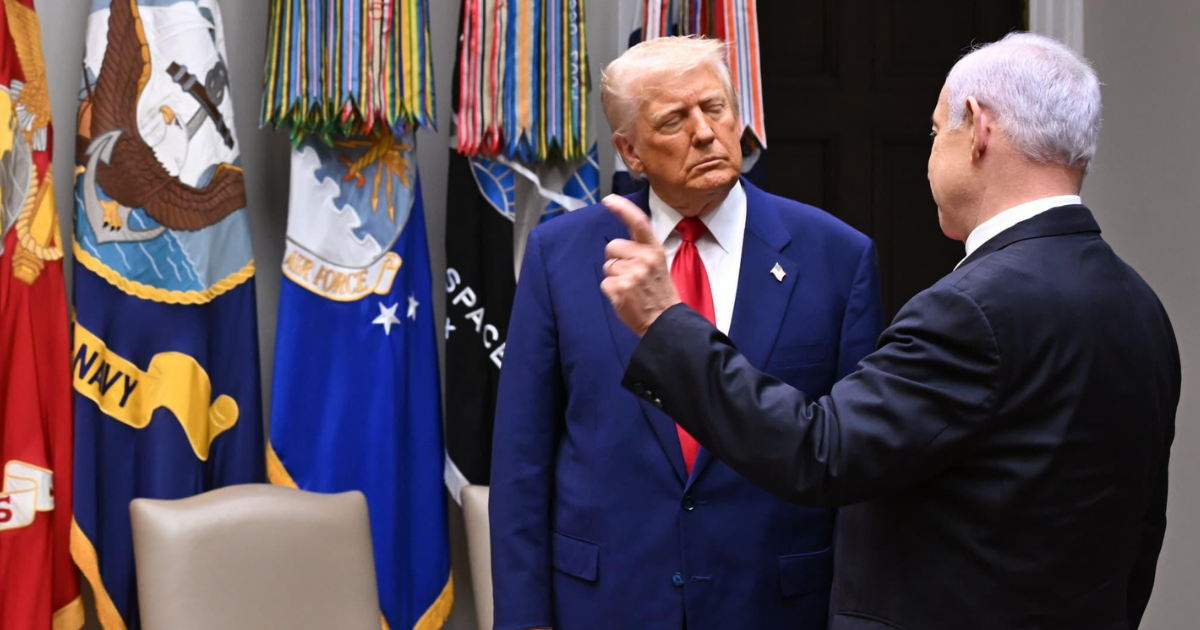EXCLUSIVE: Intelligence Failure - Iran War Lies Exposed

The recent intelligence roundtable hosted by Judge Andrew Napolitano featured a stunning, if largely overlooked, assessment of the Iran-Israel war and its aftermath. Larry Johnson, a former CIA analyst and counterterrorism official, laid out a map of Iranian strikes that he claims inflicted catastrophic damage on Israeli infrastructure in just 12 days. According to Johnson, Iran shut down Israel’s only container ports and refineries, destroyed its only international airport, and systematically targeted military-industrial investments, including multiple buildings at the Weizmann Institute. He went so far as to argue that Israel would have been forced to “surrender” or “seek a peace agreement” within two weeks had the United States not intervened to broker a ceasefire.
Johnson’s stark assessment challenged the sanitized view pushed in mainstream Western coverage. He argued that Israeli government censors have hidden the extent of the destruction from their own people and the world, a claim Ray McGovern, a former CIA briefer to U.S. presidents, endorsed by pointing to Israel’s expulsion of Reuters and AP. They discussed the censorship regime in detail, noting that Iran deliberately targeted the industrial and military heart of Israel’s coastline, and contending that the scale of the damage explains why former President Donald Trump pressured Netanyahu to agree to a ceasefire so quickly.
Trump himself appears to have inadvertently confirmed the severity of the Iranian retaliation. In a clip played by Napolitano, the former president admitted Israel was hit “very hard” by ballistic missiles that destroyed “a lot of buildings.” Johnson used this as evidence that even Trump, who usually exaggerated victories, couldn’t deny the scope of the damage. Both Johnson and McGovern suggested that the U.S. forced a ceasefire to prevent Israel from being defeated outright—a narrative sharply at odds with official Washington’s triumphant tone.
What emerged next was an even more explosive allegation about how the war began. Johnson claimed Netanyahu’s government misled Trump into approving a preemptive strike on Iran with the promise that it would “decapitate the Iranian regime” and collapse the Islamic Republic from within. According to Johnson, Israel sold Trump an easy, rapid victory—an idea McGovern called out as delusional given Iran’s size and capacity. Within hours of Israel’s initial strikes, Iran had regrouped and counter-attacked, leaving Trump scrambling for an off-ramp as Israel’s strategic position deteriorated.
Former CIA Analyst Larry Johnson claims Israeli leaders sold President Trump an overconfident plan for regime change in Iran, luring him into approving strikes that backfired. pic.twitter.com/tYyDKrfQpz
— Swift Ratel (@SwiftRatel) June 27, 2025
The discussion then turned to intelligence failures and manipulation. Johnson accused Western intelligence agencies—including the CIA, Mossad, the French, Germans, and Brits—of recruiting assets inside the IAEA to spy on Iran’s nuclear program. He warned that with Iran now threatening to cut off IAEA access and withdraw from the Non-Proliferation Treaty, the West would be left blind. Both Johnson and McGovern described a deeply compromised intelligence environment in which analysis was shaped to serve political ends, not to inform policy honestly.
“Whether it was CIA, Mossad, the French, the Germans, the Brits or maybe all of them had recruited assets inside the IAEA inspectors."
— Swift Ratel (@SwiftRatel) June 27, 2025
Former CIA Analyst Larry Johnson accuses Western powers of infiltrating UN nuclear inspection teams to spy on Iran. pic.twitter.com/lZ0nSzIVqq
Ray McGovern went further, alleging that top U.S. intelligence officials were little more than enablers for lobby interests, naming former CIA Director John Ratcliffe as a “willing collaborator” who passed Israeli intelligence “unvarnished” to the White House. The panel mocked the idea that the Trump administration’s claims of obliterating Iran’s nuclear capacity were credible, quoting Senator Chris Murphy’s assessment that officials “got caught in a lie” and tried to cover it up. According to them, the administration misrepresented satellite and infrared imagery evidence that actually showed Iran had moved enriched uranium before the strikes and fortified its facilities with concrete barriers.
“They got caught in a lie… They fudged intelligence… That's what gets us into unnecessary wars.”
— Swift Ratel (@SwiftRatel) June 27, 2025
Senator Chris Murphy accuses President Trump’s team of deliberately falsifying claims about the success of bombing Iranian nuclear sites. pic.twitter.com/BLegQnf6LG
In the end, what Johnson and McGovern painted was not merely a failed military adventure but a case study in deception, censorship, and propaganda. A war sold on false pretences to an American president who was quickly forced to retreat. A media environment that helped obscure the scale of Israeli losses. And an intelligence system that once again cooked the books to serve policy rather than shape it—a cycle they warned would continue to produce strategic disasters if left unchallenged.
Source:
